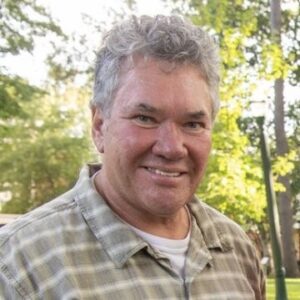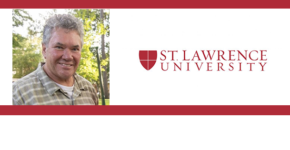 Are scientists the only ones who can do science work?
Are scientists the only ones who can do science work?
Jon Rosales, professor of environmental studies at St. Lawrence University, says no.
St. Lawrence University Professor of Environmental Studies Jon Rosales is a climate change scientist focused on the impacts of climate change on native peoples in the Arctic. His expertise and scholarly focus are on developing scientific field methods that measure traditional ecological knowledge of arctic climate change. Threaded through his work is a call to align human institutions within natural limits by challenging “monocultures of the mind,” or fossilized ways of thinking, that overwhelm the planet. Indigenous ways of living can offer one such version.
In 2009 Dr. Rosales initiated the Alaskans Sharing Indigenous Knowledge (www.AKSIK.org) project. AKSIK documents the impacts of climate change on two native villages in Alaska – Shaktoolik and Savoonga – and documents key community vulnerabilities and communicates their adaptation needs via the project’s website.
Indigenous Knowledge and Practice as Scientific Methodology
Who does science? Is it relegated solely to degree-holders trained on that side of campus, or is it something more foundational to all of us? For years I have been interested in the difference between the two, calling one Science with a capital S and the other science with a lower-case s. I believe we all do science. We look outside the window and adjust what clothing we will wear. We poke at an insect to see if it moves.
Being open to a broadening of what is called science informs how I approach my work in the Arctic on how climate change affects Indigenous peoples in the Bering Strait Region of Alaska. Through their continuous interaction with their environment, coupled with well-developed mentoring by the elders, their subsistence societies can be viewed as a university, with experienced faculty, a practiced curriculum, and lots of field lab observations. In short, they do science. And we have much to learn from them.
My latest project looks at wind direction patterns around St. Lawrence Island in the Bering Strait in the manner subsistence practitioners in Savoonga, AK observe the wind on their island – by noting dead grass lay direction and wind patterns in the live plants. We wonder if this method can generate evidence that the prevailing wind direction has changed from the north to the south and east around SLI over the last 30 years with climate change.
This project employs their Indigenous knowledge as a scientific methodology to understand on-the-ground and felt climatic changes that affect people and ecosystems. These methodologies are novel in the scientific community, but they have been tested since time immemorial in the Siberian Yupik tradition. This project further develops the emerging field of Indigenous science by employing TEK (traditional ecological knowledge), as peer-reviewed scholarship produced over generations by subsistence practitioners as a proven methodology for observation of environmental conditions.

Comments
One response to “Jon Rosales, St. Lawrence University – Indigenous Knowledge and Practice as Scientific Methodology”
Great work. Keep going. Jon Larson